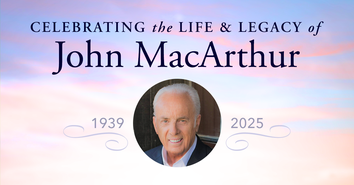Ideology Trumps Race
Published Jan 27, 2000

The hearty reception for Republican presidential candidate Alan L. Keyes by white middle-class Republicans in the Iowa caucuses underscores an important shift that is taking place in the United States. It began in 1991 when a former avowed opponent of civil rights endorsed an African-American for one of the highest offices in the land.
It was a picture that would have been unfathomable in 1948 as Strom Thurmond broke from the Democratic party to run on the segregationist Dixiecrat ticket. Yet there he was in his Senate office in 1991, an octogenarian relic of America’s dark past, warmly congratulating Clarence Thomas, George Bush’s nominee for the Supreme Court, pledging his full support, and vowing to champion Thomas’s cause in the U.S. Senate.
Nine years later, standing in the pulpit of an Assemblies of God church in Iowa, Keyes shook the house with his soaring oratory, thrilling an audience of white Americans, and leaving poor Gary Bauer with the impossible task of trying to top his performance.
Ultimately, Thurmond and Thomas were successful. Keyes will not be. Saddled with a prickly personality and an inflated sense of self, utterly devoid of a sense of humor, Keyes will certainly fail to win the Republican nomination. His candidacy, though, has highlighted a fact first brought to the nation’s attention by the Thurmond/Thomas embrace: Race is now trumped by ideology in American politics.
Professional activists like Jesse Jackson make a comfortable living fighting for the rights of expelled high school students, but the long march to fulfill Dr. Martin Luther King, Jr.’s dream of a society that judges men and women by the content of their character rather than the color of their skin more truly inches toward reality when an African-American Supreme Court nominee is championed by a former segregationist, and an African-American presidential nominee is heralded by white, middle-class Iowans.
The journeys to power of these two African-Americans put activists like Jackson on the hot seat. Are they truly in the business of helping African-Americans advance into positions of power and influence in American society, of opening the door for full integration and an opportunity for African-Americans to have full access to the American dream? Or are they in the business of pushing a narrow political agenda? With each prominent African-American that they oppose, the answer seems to become more clear.
In the case of Alan Keyes, we will likely never know what kind of a president he would have made. Had he been blessed with Martin Luther King’s humility and grace or Ronald Reagan’s geniality and optimism, perhaps the American people would have been able to share in the joy of witnessing a nation founded and built upon the backs of African slaves, swearing in a descendant of those slaves as its chief executive.
Sadly, Keyes is a flawed messenger. But even so, the message his candidacy is sending -- that white America doesn’t care about the color of the candidate, that white Americans are more interested in the substance of his or her ideas -- will live on far beyond the 2000 presidential campaign.
It is this message that makes it likely that we will see in our lifetime an African-American place his left hand on the Bible, raise his right hand to the heavens, and affirm to take care of the very nation that once enslaved his ancestors. On that day when Dr. King’s vision is realized in a public way, I predict the American public will have been through a most unusual campaign for President. They will have witnessed an African-American candidate, such as Representative J. C. Watts of Oklahoma, actively opposed by those civil rights leaders entrusted by Dr. King with the maintenance of his dream. I suspect that a President Watts will have been placed in office by the votes of millions of white Americans, who will have allowed love for a candidate’s ideas to overcome the ugly stain of their nation’s history of hatred for his skin color.
The fight for ideology over race is increasingly being joined by an unlikely cast of characters -- white Americans like Thurmond, Keyes voters in the Republican primaries, and courageous men like former South Carolina Governor David Beasley, whose proposal to lower the Confederate flag from atop his capitol building probably cost him his job. Surely were Dr. King alive today, he would welcome them into his war of love, cheering the advancement of African-Americans into the halls of power and rejecting narrow political agendas that have little to do with the promised land he saw just over the horizon.
It was a picture that would have been unfathomable in 1948 as Strom Thurmond broke from the Democratic party to run on the segregationist Dixiecrat ticket. Yet there he was in his Senate office in 1991, an octogenarian relic of America’s dark past, warmly congratulating Clarence Thomas, George Bush’s nominee for the Supreme Court, pledging his full support, and vowing to champion Thomas’s cause in the U.S. Senate.
Nine years later, standing in the pulpit of an Assemblies of God church in Iowa, Keyes shook the house with his soaring oratory, thrilling an audience of white Americans, and leaving poor Gary Bauer with the impossible task of trying to top his performance.
Ultimately, Thurmond and Thomas were successful. Keyes will not be. Saddled with a prickly personality and an inflated sense of self, utterly devoid of a sense of humor, Keyes will certainly fail to win the Republican nomination. His candidacy, though, has highlighted a fact first brought to the nation’s attention by the Thurmond/Thomas embrace: Race is now trumped by ideology in American politics.
Professional activists like Jesse Jackson make a comfortable living fighting for the rights of expelled high school students, but the long march to fulfill Dr. Martin Luther King, Jr.’s dream of a society that judges men and women by the content of their character rather than the color of their skin more truly inches toward reality when an African-American Supreme Court nominee is championed by a former segregationist, and an African-American presidential nominee is heralded by white, middle-class Iowans.
The journeys to power of these two African-Americans put activists like Jackson on the hot seat. Are they truly in the business of helping African-Americans advance into positions of power and influence in American society, of opening the door for full integration and an opportunity for African-Americans to have full access to the American dream? Or are they in the business of pushing a narrow political agenda? With each prominent African-American that they oppose, the answer seems to become more clear.
In the case of Alan Keyes, we will likely never know what kind of a president he would have made. Had he been blessed with Martin Luther King’s humility and grace or Ronald Reagan’s geniality and optimism, perhaps the American people would have been able to share in the joy of witnessing a nation founded and built upon the backs of African slaves, swearing in a descendant of those slaves as its chief executive.
Sadly, Keyes is a flawed messenger. But even so, the message his candidacy is sending -- that white America doesn’t care about the color of the candidate, that white Americans are more interested in the substance of his or her ideas -- will live on far beyond the 2000 presidential campaign.
It is this message that makes it likely that we will see in our lifetime an African-American place his left hand on the Bible, raise his right hand to the heavens, and affirm to take care of the very nation that once enslaved his ancestors. On that day when Dr. King’s vision is realized in a public way, I predict the American public will have been through a most unusual campaign for President. They will have witnessed an African-American candidate, such as Representative J. C. Watts of Oklahoma, actively opposed by those civil rights leaders entrusted by Dr. King with the maintenance of his dream. I suspect that a President Watts will have been placed in office by the votes of millions of white Americans, who will have allowed love for a candidate’s ideas to overcome the ugly stain of their nation’s history of hatred for his skin color.
The fight for ideology over race is increasingly being joined by an unlikely cast of characters -- white Americans like Thurmond, Keyes voters in the Republican primaries, and courageous men like former South Carolina Governor David Beasley, whose proposal to lower the Confederate flag from atop his capitol building probably cost him his job. Surely were Dr. King alive today, he would welcome them into his war of love, cheering the advancement of African-Americans into the halls of power and rejecting narrow political agendas that have little to do with the promised land he saw just over the horizon.
Originally published January 27, 2000.







